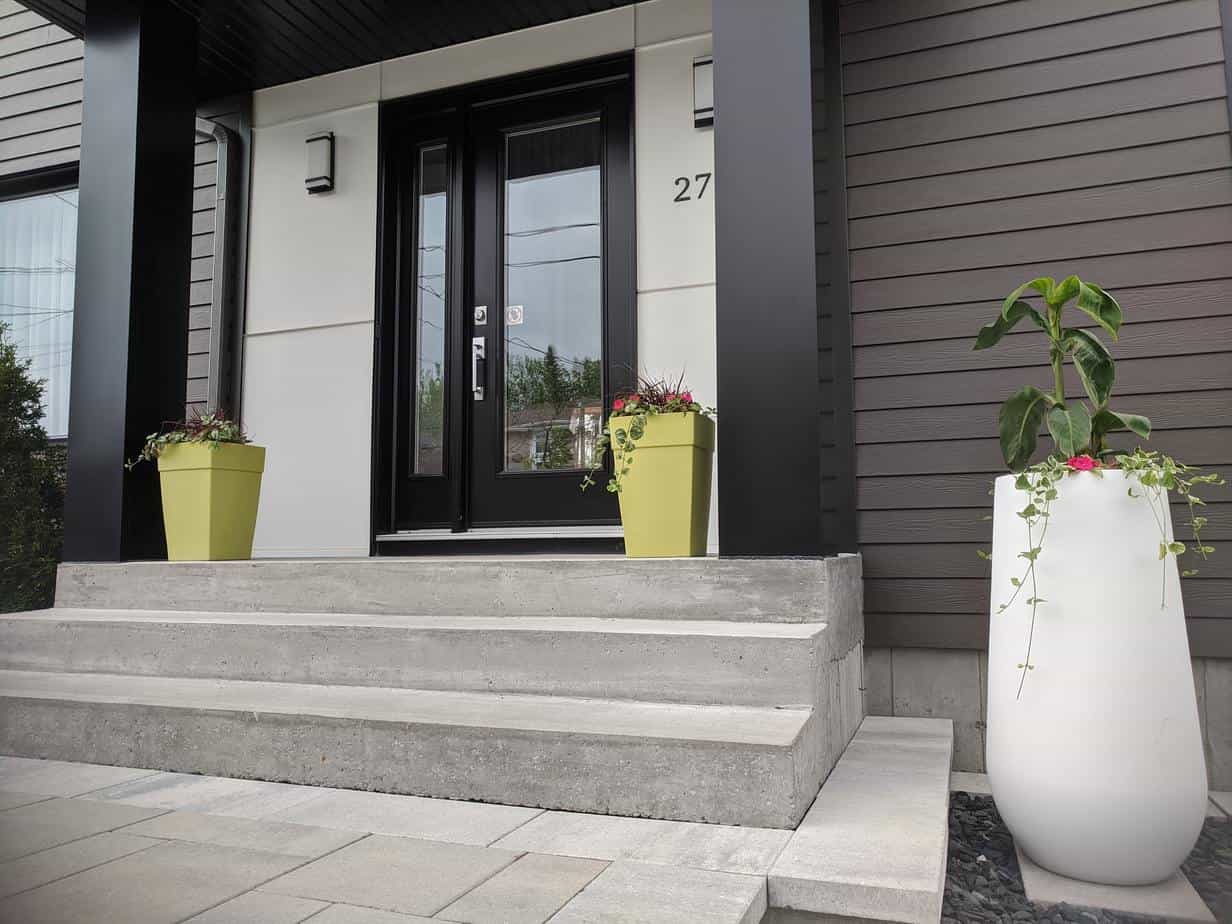
The choice of exterior stairs is a decision for years. It is important to choose them so that they are durable, safe and correspond to our aesthetics.
External stairs leading to our house have many functions. First of all, they have an aesthetic value. Drawing of the building, elevation and stairs is the first thing that strikes the eye. So it is important that stairs were nice, matched to the building and its surroundings, and that we liked them. So is the visual aspect the most important? Not necessarily. Stairs have to be safe. Properly profiled, non-slippery, with adjusted, stable handrail. Another important issue is the exposure of external stairs to weather conditions. So they must withstand changes in temperature, rainfall and snowfall. So how to choose the right outdoor stairs for your home, so that you do not regret your decision?
Metal exterior stairs – made of steel or aluminum – is one of the possible options. Its main advantage is the price. This type of stairs is the cheapest of all available solutions. Metal stairs are resistant to weather conditions, bruising and other mechanical damages. The construction arrives to us in a ready form. After a quick assembly we see the effect immediately.
If we choose corrugated or openwork stairs, we will be sure of safety. These stairs will provide adhesion even during rain or winter weather with snow and frost. The aesthetic value remains debatable. Stairs made of metal have their supporters and opponents. With the current fashion for industrial accessories and finishes, it is not a bad solution. Moreover, metal stairs can successfully serve as a frame for climbing plants that will decorate the structure. Taking into account the balance of advantages and disadvantages, metal stairs for the house is a solution worth considering.
Concrete outdoor stairs are another of the available options. Stairs made of concrete or concrete blocks are durable, resistant to damage and weather. Concrete has been a trendy interior design element in recent years. This material combines well with metal, wood and glass. However, making such stairs is more time-consuming and more expensive than the metal variant.
Concrete outdoor stairs can have any shape, size and finish. There may be free space between the steps or the whole may be connected. Depending on the type of concrete, stairs can have a smoother or rougher texture. The rougher the concrete texture, the better the adhesion. The disadvantage, however, is cleaning the stairs. Heavy dirt can penetrate the concrete structure and be difficult to polish.
Concrete stairs construction can also be covered with: tiles, stone, wood or composite board. This treatment has mainly aesthetic value, but increases the price of stairs construction and may affect their durability. It is worth remembering to choose materials intended to cover the stairs on the outside of buildings. You should also pay attention if the covering material is anti-slip.
Paving blocks are an elegant and durable material for sidewalks, driveways, terraces and outdoor stairs. If the area in front of our house is finished with this material, the stairs will look very coherent. This solution, however, does not belong to the cheapest ones. You have to pay a lot for both the material and labor. External stairs made of paving blocks can be durable and solid, but professional and precise workmanship is crucial. Otherwise, they will deteriorate under the influence of weather conditions.
If we decide to use external stairs made of paving blocks, it is worth choosing a contractor who is experienced in this kind of work. If we care about a budget solution and cutting expenses, then this option is not the best choice.
Main photo: Véronique Trudel/Unsplash